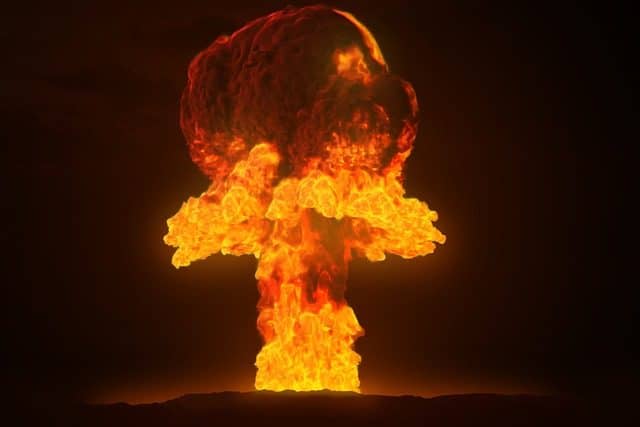A fire science degree offers a pathway to numerous career opportunities focused on fire safety, prevention, and emergency management. These programs equip students with essential knowledge about fire behavior and related technologies, preparing them for various roles in the field.
With increasing demands for safety and emergency services, understanding what can you do with a fire science degree is crucial for those interested in this rewarding profession.
Table of Contents
What careers can you pursue with a fire science degree?
A fire science degree opens doors to several rewarding careers. Graduates can work as firefighters, where they respond to emergencies and protect lives and property. Additionally, many choose to become fire inspectors, focusing on fire safety compliance and prevention measures.
Other potential careers include:
- Wildland fire specialist: Engaging in wildfire management and prevention efforts.
- Arson investigator: Investigating suspicious fires and working with law enforcement.
- Emergency management personnel: Planning and coordinating responses to emergencies.
Each role requires specific skills and knowledge, making the fire science curriculum vital for success. The demand for professionals in these areas continues to grow, enhancing job security for graduates.

What are the educational requirements for a fire science degree?
To earn a fire science degree, students typically start with an associate degree, which provides foundational knowledge in fire science principles. Many institutions offer bachelor’s degrees, focusing on advanced topics like fire protection engineering and emergency services.
Some of the key educational requirements include:
- Completion of general education courses.
- Core fire science classes covering subjects such as fire behavior, emergency management, and fire prevention.
- Hands-on training through internships or cooperative education experiences.
Graduate programs are also available for those looking to enhance their qualifications, often focusing on leadership and advanced management techniques within the fire science field.
How long does it take to complete a fire science degree?
The time required to complete a fire science degree varies based on the level of the program. An associate degree typically takes around two years, while a bachelor’s degree may take four years. Graduate programs often require an additional one to two years of study.
Factors that can affect completion time include:
- Course load: Full-time students can complete their degrees faster than part-time students.
- Transfer credits: Students transferring from other institutions may have credits that reduce their time to degree.
It’s essential for prospective students to consider their personal schedules and commitments when planning their educational path in fire science.
What is the average salary for fire science graduates?
The salary for fire science professionals can vary widely based on job title, location, and experience level. According to recent data, firefighters earn an average salary of approximately $50,700 per year. However, positions like fire protection engineers can command higher salaries, averaging around $88,873.
Factors that influence these salary differences include:
- Geographical location: Salaries tend to be higher in urban areas compared to rural settings.
- Experience: More experienced professionals often earn significantly more than entry-level workers.
Ultimately, pursuing advanced education and specialized training can lead to increased earning potential in the fire science field.
What are the different types of fire science degrees?
Fire science degrees come in various formats to cater to different educational and career aspirations. The main types include:
- Certificate programs: Short courses focusing on specific skills, often designed for those already in the field.
- Associate degrees: Provide foundational knowledge and skills for entry-level positions in fire safety.
- Bachelor’s degrees: Offer advanced education and prepare graduates for management or specialized roles.
- Master’s degrees: Focus on leadership and strategic management in fire science and emergency services.
Each degree level offers unique opportunities and can enhance a graduate’s career prospects.
Why is a fire science degree important for career advancement?
Obtaining a fire science degree is crucial for those looking to advance in their careers. It not only provides essential knowledge about fire safety and prevention but also demonstrates a commitment to professional development.
Significant benefits of earning a fire science degree include:
- Enhanced job opportunities: Graduates are more qualified for specialized roles within the fire service.
- Increased earning potential: Degrees often translate to higher salaries and better benefits.
- Access to advanced training: Many positions require a degree for higher-level certifications and training.
Additionally, a degree can open pathways to leadership roles within fire departments and emergency services, further solidifying its importance for career advancement.
Frequently asked questions about careers in fire science
Questions related to fire science careers
What degree is best for a firefighter?
The best degree for a firefighter often depends on individual career goals. An associate degree is commonly sufficient for entry-level positions, but many departments prefer or require a bachelor’s degree for advancement. This higher level of education provides deeper knowledge of fire science principles and emergency management.
What is the highest degree in fire science?
The highest degree in fire science is typically a master’s degree. This level of education focuses on advanced topics, including fire protection engineering, emergency management, and leadership strategies. A master’s degree can significantly enhance job prospects and is often required for high-level administrative or technical positions.
What field of science is fire?
Fire science is an interdisciplinary field that encompasses various scientific disciplines, including chemistry, physics, and environmental science. It studies the behavior of fire, its chemical reactions, and its impact on the environment, making it essential for developing effective fire prevention and safety strategies.
What is the meaning of fire science?
Fire science refers to the study and application of knowledge related to fire behavior, prevention, and safety. It encompasses various topics, including fire dynamics, fire protection engineering, emergency management, and the ecological impact of fire. This field aims to develop effective methods for fire prevention and response, ensuring public safety.









